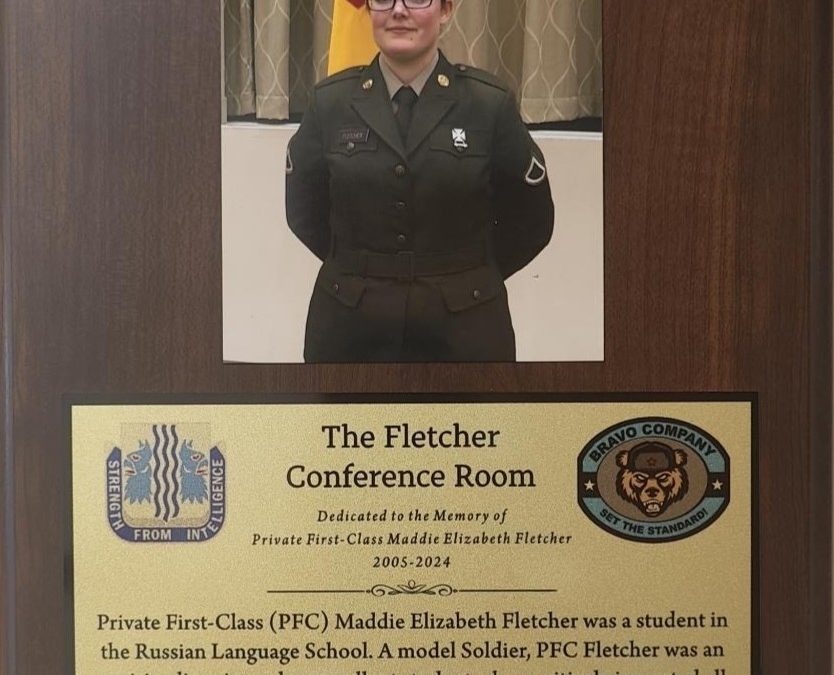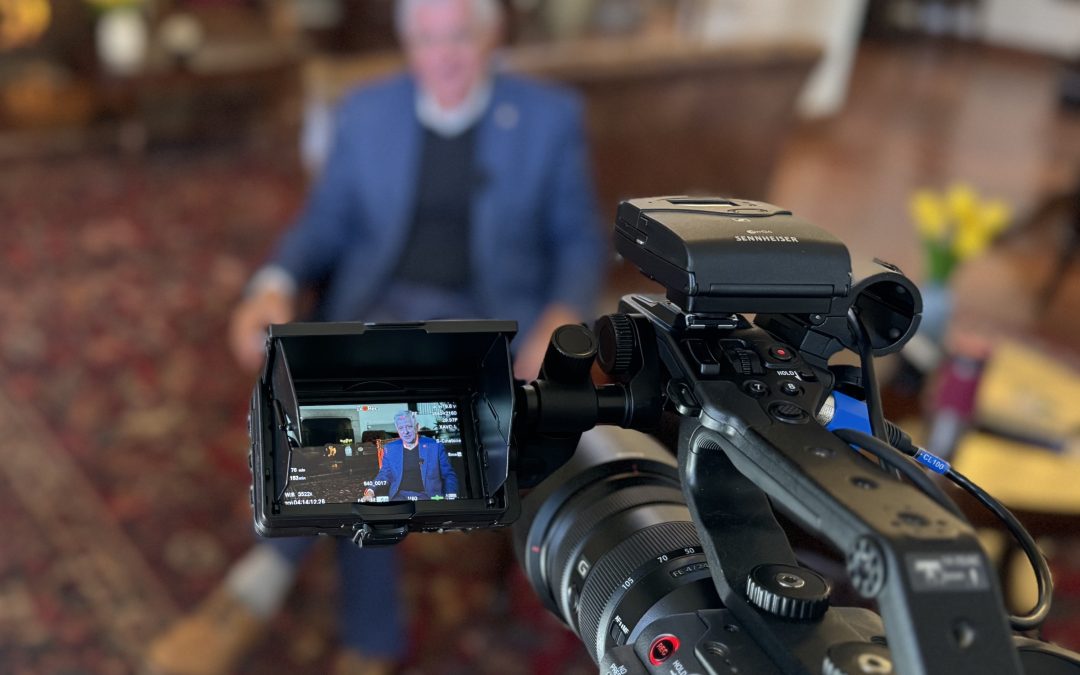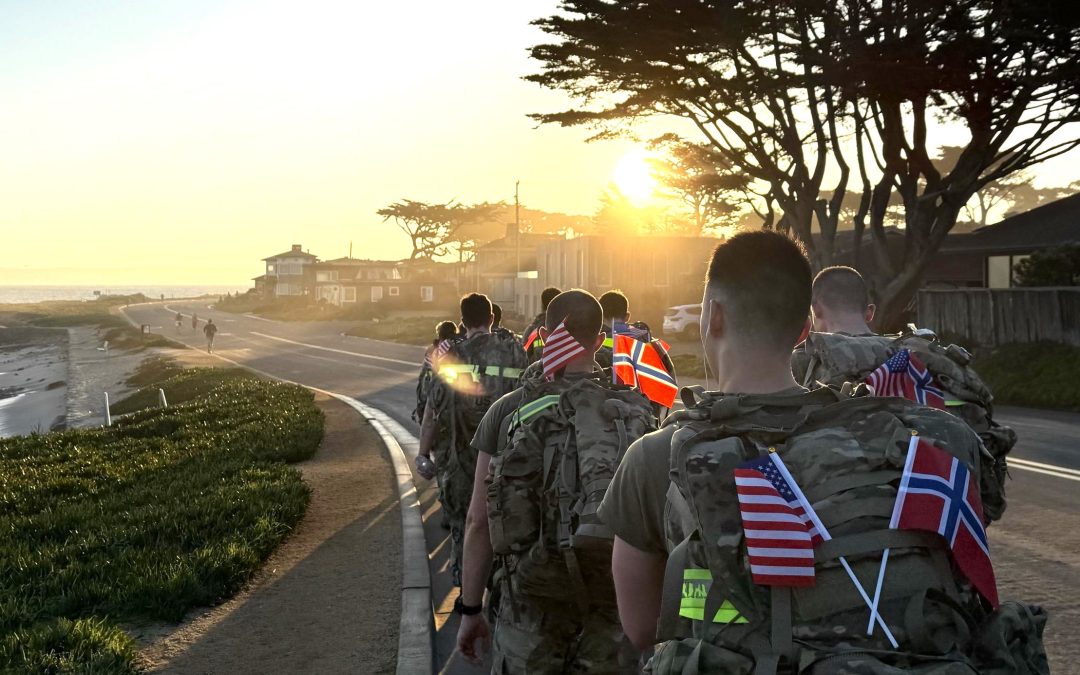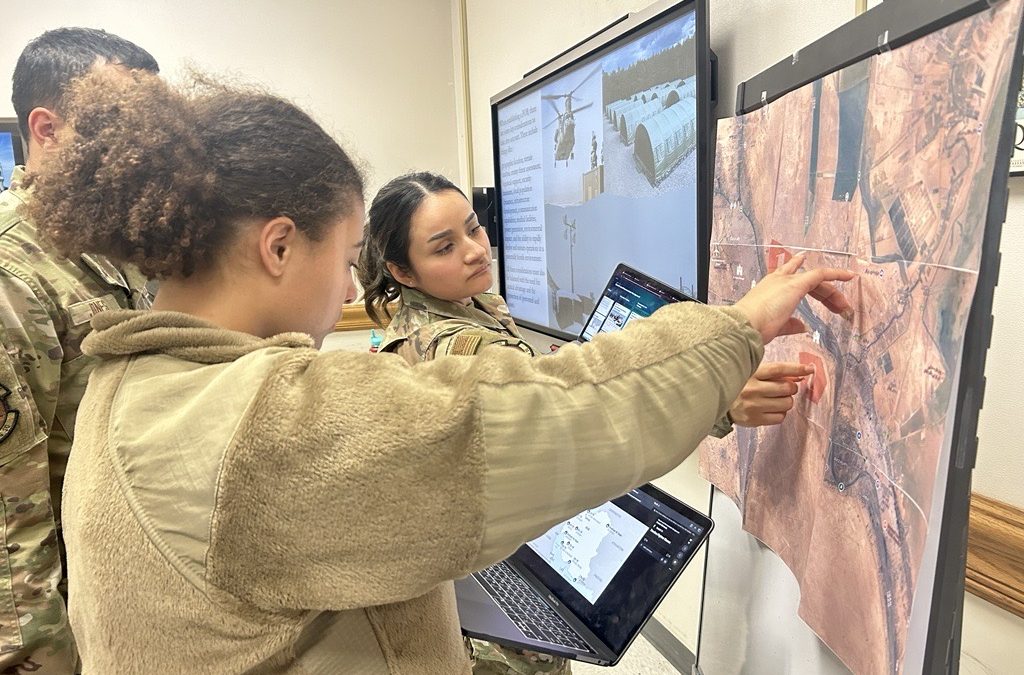The Air Force began another iteration of a pilot foreign language program called Linguist Next which intends to graduate students with higher proficiency scores by developing students’ learner autonomy through a more holistic approach to the very intensive Defense Language Institute Foreign Language Center basic course programs.
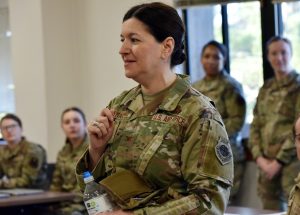
Col. Jennifer Saraceno, DLIFLC assistant commandant and commander of the 517th Training Group, welcomes students to Linguist Next.
“We are very excited to kick-off the second Linguist Next cohort today. With the lessons learned from the previous Linguist Next class that graduated in October 2022, this group will continue the exploration of modernizing the language learning model at the Defense Language Institute Foreign Language Center,” said Col. Jennifer Saraceno, DLIFLC assistant commandant and commander of the 517th Training Group.
“We are very excited to start a new class of students using the same concept with some data-based modifications and enhancements,” said program manager Dr. Leah Graham,” who welcomed the second cohort of students to their Modern Standard Arabic course on April 13. This iteration of the class includes eight Army students for a total of 30 service members.
The first pilot program initiated by the 517th Training Group in cooperation with DLIFLC began in July 2021 with 32 students studying Modern Standard Arabic for 64 weeks. The goal was to see if learners could reach higher proficiency levels faster by using innovative ways of teaching, but also by paying more attention to overall student wellness.
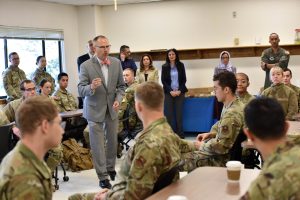
DLIFLC provost, Dr. Robert Savukinas, welcomes the new cohort of students that are going through the Linguist Next program.
One of the first things the Air Force did was restructure the student day to facilitate Linguist Next’s attention to Airmen wellness. It incorporates time for midday activities such physical fitness or service appointments, or the time can be used for study, allowing students to organize a portion of their day according to how they approach the learning process. The schedule eliminated all early morning and late afternoon activities to allow students to prioritize recommended sleep and to provide students with more time for personalized learning in the evening.
“Giving us Garmin watches to track our activities, exercise, and sleep really motivated us. We competed against one another, and it was really fun,” said Airman 1st Class May Hamza. “The thing I liked most about the course was the ability to get eight hours of sleep,” she said.
“Human performance optimization factors such as sleep, physical activity, stress management, and nutrition are foundational for a successful learning experience. Linguist Next’s modified schedule takes this into consideration.” explained Graham. “Habitual attention to these factors lessens students’ cognitive loads, which increases their ability to retain what they have learned.”
Normally, a 64-week course at DLIFLC is tightly structured for six to seven hours per day, with two to three hours of homework each night along with physical fitness requirements in the early morning and Service requirements in the late afternoons. For many students, the pressure to succeed, coupled with military obligations, can be overwhelming.
DLIFLC’s basic course curriculum was reimagined for an entirely digital environment. The redesign “Utilizes an agile, flexible, and adaptable model which leverages emerging technology to elicit higher-order language analysis and critical thinking,” explained Graham.
“The only book we had was our Arabic to English dictionary,” said Airman 1st Class Kenneth Oyola. “The entire course was on a DLI platform called UCAT. “Every passage we worked on was from authentic materials, directly from an authentic Arabic source,” he added.
For those who understood that the educational experience put the ball in their court, the course was challenging but offered a different approach to learning.
“The course felt like trial by fire,” said Airman 1st Class Luis Flores describing the beginning of the course. Instead of learning in a traditional school environment, where teachers control most of the activities and homework that is given each day, “All the responsibility was on us… some people found that more difficult, some found it easier. In my case, I found it refreshing coming from high school. I had more freedom to do what I wanted and more tools … which allowed me to gamify my experience,” he explained.
“Growing students into self-regulated learners over the course of their studies at DLI eases the transition to language maintenance and enhancement mode once they graduate. This sets students up for success after graduation,” said Graham.
One of the opportunities for independent study students enjoyed was curriculum-based single player games and virtual reality language and culture experiential games on the Oculus Quest VR platform. Other technology used included AI-generated personal learning algorithms that can recommend areas of focus and activities to students and instructors.
With the new cohort, course managers and instructors will be able to apply lessons-learned from the first group to implement in this new iteration. Sixty four percent of the graduates from the first cohort graduated with at least a 2+/2+/2. The goal with the next class is to graduate more students at these higher proficiency levels.
“Enhancements have been implemented such as the inclusion of targeted human performance optimization activities, refined game-based technology, increased proficiency-based assessment opportunities, and learning scaffolds to help students grow into autonomous learners,” explained Graham.
“We are also excited to have Army Soldiers join us on this journey of becoming effective autonomous learners and adept critical thinkers – both while at the Defense Language Institute and once they have begun their operational assignments working to support the National Defense Strategy,” said Saraceno.

